Feminism and Power
Feminism and Power
The Need for Critical Theory
Mary Caputi
LEXINGTON BOOKS
Lanham Boulder New York Toronto Plymouth, UK
Published by Lexington Books
A wholly owned subsidiary of The Rowman & Littlefield Publishing Group, Inc.
4501 Forbes Boulevard, Suite 200, Lanham, Maryland 20706
www.rowman.com
10 Thornbury Road, Plymouth PL6 7PP, United Kingdom
Copyright 2013 by Lexington Books
All rights reserved. No part of this book may be reproduced in any form or by any electronic or mechanical means, including information storage and retrieval systems, without written permission from the publisher, except by a reviewer who may quote passages in a review.
British Library Cataloguing in Publication Information Available
Library of Congress Cataloging-in-Publication Data
Caputi, Mary, 1957
Feminism and power : the need for critical theory / Mary Caputi.
pages cm
Includes bibliographical references and index.
ISBN 978-0-7391-7579-8 (cloth : alk. paper)ISBN 978-0-7391-7580-4 (electronic)
1. Feminism. 2. Feminist theory. 3. Power (Social sciences) 4. Adorno, Theodor W., 19031969. 5. Derrida, Jacques. I. Title.
HQ1190.C367 2013
305.42dc23
2012051421
 TM The paper used in this publication meets the minimum requirements of American National Standard for Information Sciences Permanence of Paper for Printed Library Materials, ANSI/NISO Z39.48-1992.
TM The paper used in this publication meets the minimum requirements of American National Standard for Information Sciences Permanence of Paper for Printed Library Materials, ANSI/NISO Z39.48-1992.
Printed in the United States of America
For Richard and Rahael
Acknowledgments
There are many people to whom I owe gratitude for this projects completion. I am indebted to them all for the guidance, support, and encouragement of various kinds that they have offered to me as I worked on Feminism and Power: The Need for Critical Theory. Without their help and words of encouragement, I would never have finished. I wish to first thank Rene Heberle and Judith Grant for their enthusiastic support for this project at its inception. They were involved in early conversations about its ideas, read early drafts, and offered invaluable guidance with regards to how the project should be structured. Their knowledge of feminist scholarship and of critical theory made them excellent interpreters of my ideas, and I am grateful that they were so supportive as the project got off the ground. Michaele Ferguson also listened carefully to my ideas as I described the project to her, and made helpful suggestions in terms of literature. I am indebted to her for the thoughts she shared on how to bring feminism and critical theory together. I would also like to thank Andrew Cutrofello, Lars Rensmann, and Michael Diamond for the insights they offered regarding this project at a conference. All are excellent scholars of critical theory and have much to say about its significance in the early twenty-first century. They read an excerpt from the manuscript carefully and offered useful suggestions that I have taken to heart. Their warm endorsement of my efforts to bring critical theory to bear on power feminism is much appreciated.
My gratitude also extends to many of my colleagues at Cal State who have listened to me discuss my progress at various stages of the books completion. Many thanks to you all, and especially to Ron Schmidt, Susan Carlisle, Misty Jaffe, and members of the Political Science Department who offered worthwhile comments following a colloquium I gave on the books central argument. I am also indebted to my students, who keep me up-to-date through humorous anecdotes testifying to the many conflicting meanings of feminism today. I appreciate the seriousness that accompanies their colorful stories. My employer, California State University, Long Beach, also has helped see this project to completion by generously granting me release time from coursework. The time to write, research, and reflect has proved invaluable.
I am also indebted to many people at Lexington Books who have steered me through the stages of publication, especially Alison Northridge, Justin Race, and Alissa Parra. Thank you for your guidance and patience with me. And many thanks to Philip Baker for his fine work as a painstaking, careful copyeditor. Finally, I wish to thank all the friends and family members who have listened to me discuss this project during the three and a half years of its execution. I sincerely hope that I have not been overbearing in my efforts to stay focused on my work. Thank you all for putting up with me. My sincerest thanks go to my husband, Richard, who helped with proofreading, and daughter, Rahael. Both have patiently offered their loving support despite the fact that this project has taken up a good deal of family time. Their respect for my work and caring for my well-being are gratefully acknowledged.
Foreword
I was hardly alone in realizing that, somewhere in the 1990s, things started to change for women in their understanding of feminism. It was especially among younger women that I perceived a shift in how they understood the term, whose meanings seemed to have changed considerably from the 1980s when I had studied it in graduate school. Friends and colleagues of mine commented on the same thing. Among younger women there was a certain complacency, but also a thrilla thrilled complacencyat returning to and indeed endorsing an older version of femininity and of male-female relations. A regressive attitude seemingly prevailed among younger women as witnessed in their highly sexualized clothing, their extravagant, expensive weddings, their eagerness to take their husbands last names, and their unapologetic desire to undergo cosmetic surgery and Botox infusions. They deliberately distanced themselves from feminism, and often identified with backlash efforts aimed at undermining its impact on American culture and society. Even as they entered professional and graduate schools in record numbers and began to outlearn their spouses, they often began sentences with the disclaimer: Im not a feminist, but...
For somewhat older women like me, this change in attitude felt distressing and somewhat bewildering. Not ten years earlier, I had been studying second wave feminism and was wholly enamored of the radical change that it seemed to portend. Far from destroying time-honored institutions like the family, marriage, or motherhood, feminism offered a different way to do things that, to my mind, would benefit everyone: feminism was for men, too. It was progressive and humane, urging people to think creatively and feel confident that change for the better was possible. It drew on our best energies and asked that we use our imagination; above all, it served everyones needs, and never sought the self-seeking special interests of which its adversaries accused it. With literature such as Dorothy Dinnersteins The Mermaid and the Minotaur, Mary Dalys Wickedary, the poetry of Adrienne Rich, and the criture fminine of Hlne Cixous, I admired the creative energies with which feminism hoped to change not only laws, institutions, and practices, but also peoples attitudes toward gender and sexuality. For indeed, the second waves oppositional stance operated at both the empirical and psychic levels and thus promised to impact culture in profound ways. Its objects of scrutiny were both the social sphere and the human unconscious, such that the innovative moves it adumbrated suggested profound, radical change.
With such a tall order to fill, second wave feminism could not be conciliatory. For my cohort, it was a wholly oppositional movement that took aim against patriarchy in all its guises. Misogyny was an ever-present, insidious reality that we had to not only root out but also destroy: it was embedded in the family, marriage, childrearing, and education; in the state and legal system; in language and literature, art and the media, and of course in sexuality. Its harmful influence was so pervasive as to be imperceptible, and prominent second wave scholars such as Catharine Mackinnon sought to disabuse women of the false consciousness that blinded them to their own oppression. A discerning eye and confident spirit could change society from the ground up in ways that would render it more humane, and many of us subsequently argued that gender deserved equal billing as a critical category alongside race and class.
Next page
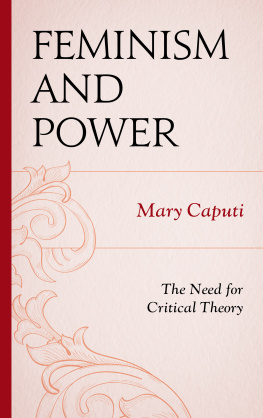
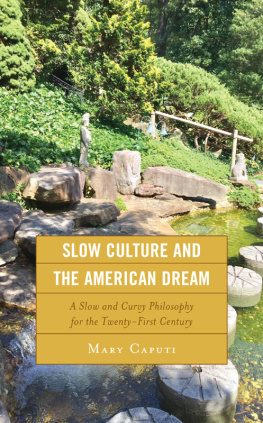

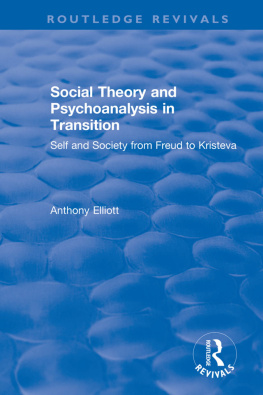
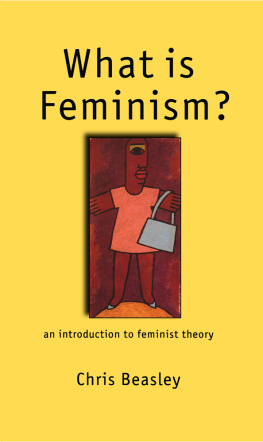
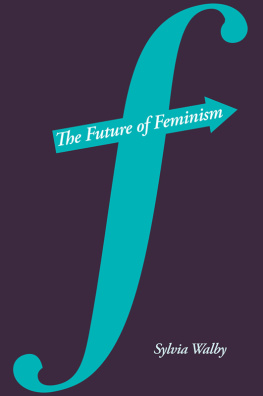
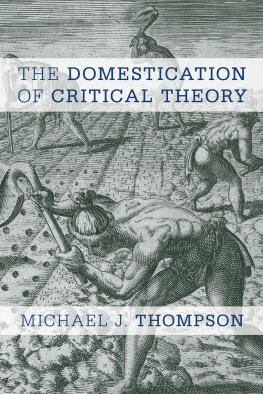
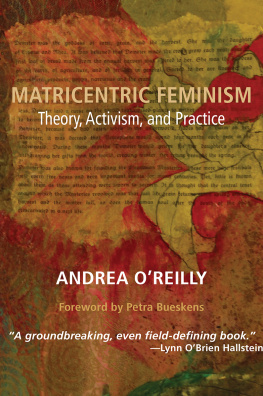
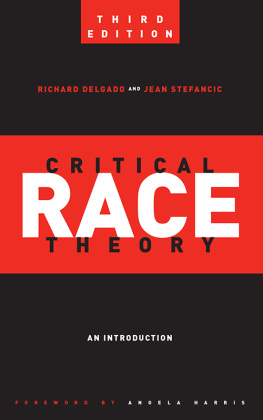
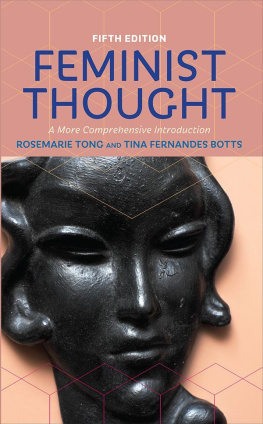
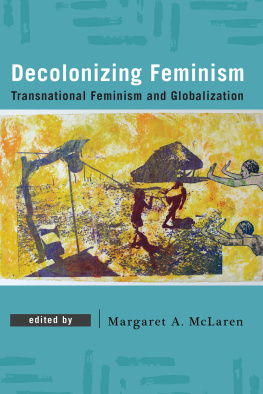
 TM The paper used in this publication meets the minimum requirements of American National Standard for Information Sciences Permanence of Paper for Printed Library Materials, ANSI/NISO Z39.48-1992.
TM The paper used in this publication meets the minimum requirements of American National Standard for Information Sciences Permanence of Paper for Printed Library Materials, ANSI/NISO Z39.48-1992.